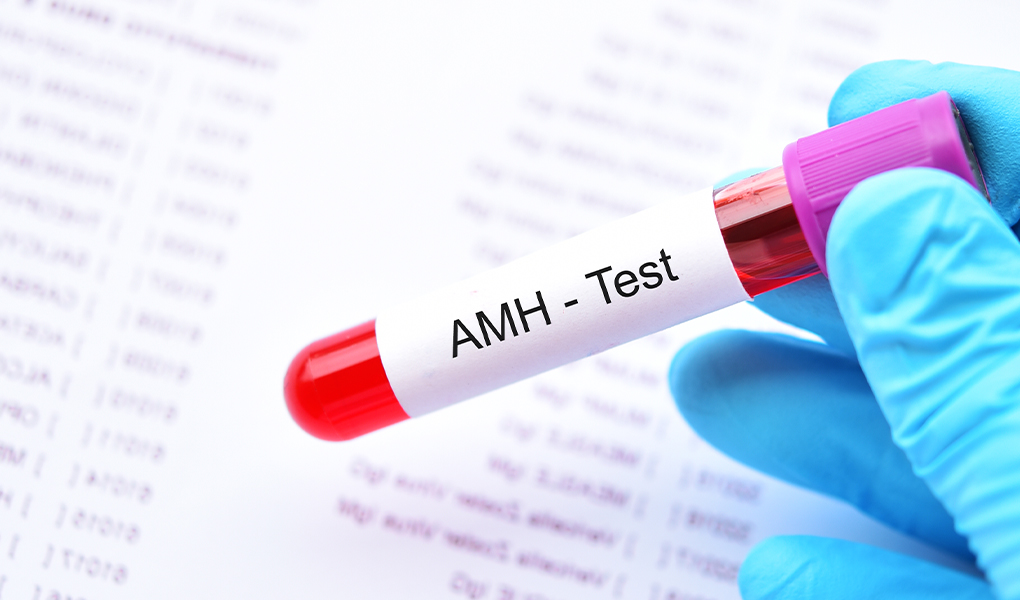Utilizing IUI Treatment for Low AMH aims to optimize chances of conception by facilitating direct sperm injection into the uterus. Dealing with low Anti-Mullerian Hormone (AMH) levels can be a challenging aspect of the fertility journey. However, advancements in assisted reproductive technologies offer a ray of hope, with Intrauterine Insemination (IUI) emerging as a viable option for individuals with low AMH. Let’s delve into the specifics of IUI treatment for low AMH, exploring its principles, potential benefits, and considerations for those navigating the complexities of fertility.
Understanding IUI Treatment for Low AMH
Definition and Process : Intrauterine Insemination (IUI) involves the direct placement of specially prepared sperm into the uterus, bypassing the cervix. This procedure is strategically timed with a woman’s natural ovulation cycle to optimize the chances of fertilization.
Application in Low AMH Cases : For individuals with low AMH levels, IUI offers a targeted approach to enhance the chances of successful conception. By delivering sperm directly to the uterus, IUI compensates for potential limitations in the natural fertility process.
The IUI Treatment for Low AMH
Ovulation Monitoring
The IUI process begins with closely monitoring the woman’s ovulation cycle. This can involve tracking hormonal levels and, in some cases, using medications to stimulate the development of multiple eggs.
Sperm Preparation
Sperm preparation is a crucial step where sperm from a partner or a donor is specially treated to enhance its quality. This ensures that only the healthiest and most motile sperm are used for the insemination.
Insemination Process
Once ovulation is imminent, the prepared sperm is directly introduced into the uterus through a thin catheter. This is a relatively quick and minimally invasive procedure performed in a medical setting.
Potential Benefits of IUI treatment for Low AMH
Increased Sperm Concentration
IUI significantly increases the concentration of sperm that reach the fallopian tubes, where fertilization typically occurs. This is particularly beneficial when dealing with lower sperm counts or reduced motility.
Controlled Ovulation
For individuals with low AMH and irregular menstrual cycles, IUI provides the opportunity for controlled ovulation, optimizing the chances of successful fertilization.
Minimized Sperm Obstacles
By bypassing the cervix, IUI minimizes potential obstacles that may hinder the sperm’s journey to the egg. This is advantageous, especially in cases of cervical issues.
Considerations and Expert Guidance
Personalized Treatment Plans
IUI treatment for low AMH is not a one-size-fits-all approach. Fertility specialists craft personalized treatment plans based on individual health profiles, ensuring the most effective and tailored approach.
Expert Monitoring
Throughout the IUI process, expert monitoring is crucial. Regular assessments and adjustments to the treatment plan, if necessary, enhance the likelihood of a positive outcome.
Conclusion
IUI treatment for low AMH represents a valuable option for individuals and couples striving to overcome fertility challenges. While it may not be a panacea, IUI offers a strategic and less invasive intervention that aligns with the natural reproductive process. Consulting with a fertility specialist to explore the suitability of IUI for low AMH is a crucial step toward realizing the dream of parenthood. For individuals seeking comprehensive care for low Anti-Mullerian Hormone (AMH) levels and exploring Intrauterine Insemination (IUI) treatment tailored for low AMH, the expertise of Dr. S. Vyjayanthi at MotherToBe is a beacon of assurance and guidance.
Contact for Low AMH Treatment and IUI for Low AMH:
MotherToBe is a leading fertility institution with Dr. Vyjayanthi spearheading as a distinguished Fertility Specialist in hyderabad, madhapur. Her extensive qualifications, including MD, DGO, DNB, MRCOG, MSC (Embryology UK), and CCT (UK), showcase her commitment to advancing reproductive medicine. As a Subspecialist in Reproductive Medicine & Surgery recognized by the Royal College of Obstetricians and Gynaecologists (RCOG), UK, Dr. Vyjayanthi brings a wealth of experience to address low AMH and offer specialised IUI treatments.
Dr. S. Vyjayanthi’s Roles at MotherToBe and KIMS, Secunderabad:
– Director and Fertility Specialist, MotherToBe
– Head of Department & Consultant Fertility Specialist, KIMS, Secunderabad.
To embark on a personalized fertility journey, seek expert advice, and explore tailored treatments for low AMH or IUI, contact MotherToBe under the exceptional guidance of Dr. S. Vyjayanthi. Her commitment to providing the finest care ensures that individuals and couples receive the support they need on their path to parenthood.
FAQs
- Can IUI be effective for individuals with severely low AMH levels?
The effectiveness of IUI varies based on individual circumstances. Consultation with a fertility specialist provides insights into the suitability of IUI for specific cases.
- Is IUI a painful procedure for individuals with low AMH?
IUI is a minimally invasive procedure and is generally well-tolerated. Any discomfort is typically brief and mild.
- How many IUI cycles are typically recommended for individuals with low AMH?
The number of recommended IUI cycles varies based on factors such as age, overall health, and individual response to the treatment. Fertility specialists provide personalised recommendations.
- Can IUI be combined with other fertility treatments for low AMH?
Depending on individual circumstances, fertility specialists may recommend combining IUI with other treatments to optimize outcomes. The decision is made based on a thorough evaluation.
- What lifestyle changes can enhance the success of IUI for low AMH?
Adopting a healthy lifestyle, including a balanced diet, regular exercise, and stress management, can contribute to the overall success of IUI. Discussing lifestyle factors with a fertility specialist is advisable.

